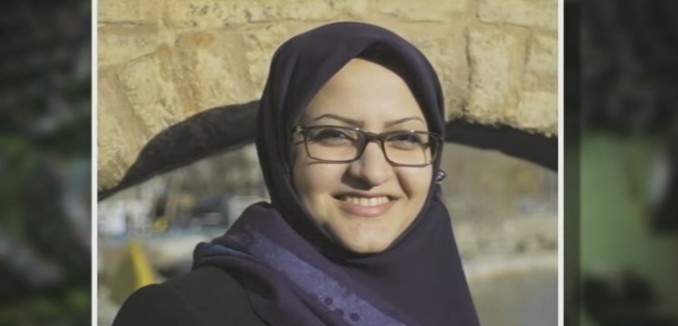An Iranian state committee ruled Wednesday that a female member of parliament who was elected in February cannot be sworn in because she allegedly appeared with her hair uncovered when traveling abroad.
The Dispute Settlement Committee of Branches, an official judicial body, determined that Minoo Khaleghi could not serve as a member of parliament, basing its ruling on photos of Khaleghi that had circulated on social media showing her traveling through Europe and China without a headscarf. Iranian law states that women must wear a headscarf in public at all times, even when abroad.
Khaleghi claimed that the pictures of her with an uncovered head were fake. “I am a Muslim woman, adhering to the principles of Islam,” she wrote in a statement to an official state newspaper. The people who published the pictures of her, she charged, were driven by “political greed.”
Iran’s interior ministry arrested an activist for posting the pictures of Khaleghi on social media a day before she was suspended.
The Dispute Settlement Committee was asked to rule on Khaleghi’s fitness to serve in parliament because the Guardian Council, a group of clerics appointed by Supreme Leader Ayatollah Ali Khamenei that approves political candidates, ruled after she was elected in March that she was disqualified. The Guardian reported in April that Khaleghi was accused of shaking hands with an unrelated man when she was abroad, a charge that Khaleghi also denied.
The New York Times‘s report on Khaleghi’s ordeal portrayed the incident as an effort by hardliners to thwart the will of the people, who elected moderates and allies of Iranian President Hassan Rouhani. But the Guardian Council disqualified 99 percent of the reformers who registered to run in the election, forcing reformers to scramble to find candidates to complete their lists—a process that left many hard-liners running on reform tickets.
The Times also characterized the head of Iran’s interior ministry as an ally of the moderate Rouhani. But the fact that the interior ministry authorized a Holocaust cartoon contest to take place later this month may cause some to question its moderation. The support for Holocaust denial among moderates in Iran prompted The Washington Post editorial board to remark earlier this week that Iranian moderates are doing “a good job of disguising” any differences between themselves and hardliners.
Ben Cohen, senior editor of The Tower, made a similar point in an essay in March:
With Rouhani in power, the traditional understanding of what constitutes a “moderate” has been stretched beyond recognition. To be a “moderate” in Iran these days, you don’t have to disavow the regime’s military and operational backing, in concert with Russia, for the deranged Bashar al-Assad dictatorship in Syria. You don’t have to pledge that $150 billion in recouped funds from sanctions relief will be spent on public health, or children’s literacy programs, instead of Shi’a terrorist organizations in Iraq and Lebanon. You don’t have to stop roaring slogans like “Death to Israel!” and “Death to America!” at public demonstrations. All that is required for exemption from “hardliner” status is a broad show of support for the nuclear deal.
[Photo: VOA Farsi / YouTube ]




